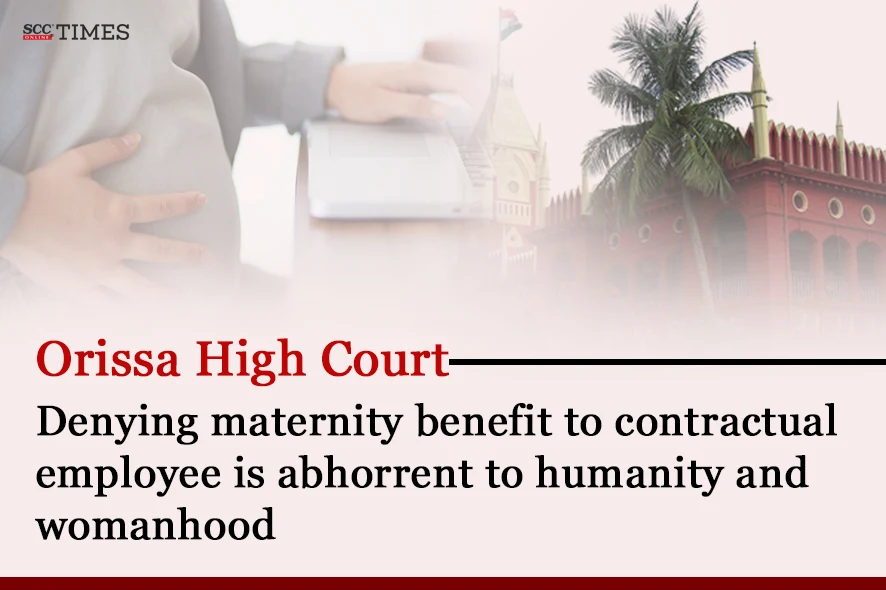Orissa High Court: The present writ appeal was filed by the State challenging a Single Judge’s order, wherein it had directed the grant of maternity leave to a woman engaged on a contractual basis under the Health and Family Welfare Department. The Division Bench of Dixit Krishna Shripad* and M.S. Sahoo, JJ., held that denying maternity benefit based on nature of employment was abhorrent to the notions of humanity and womanhood and further observed that the concept of maternity leave was structured on the principle of “zero separation” between a lactating mother and her breastfeeding baby.
Background:
The respondent was employed as a contractual “young professional” in the Health & Family Welfare Department with effect from 20-5-2014. After giving birth, she applied for the grant of maternity leave from 17-8-2016 to 12-2-2017. Though supported by medical documentation, her application was rejected without providing any reasons.
Aggrieved by the rejection of her maternity leave, she filed a writ petition. The Single Judge quashed the rejection order after finding that she had been wrongly denied the benefit and directed the authorities to extend the benefit of maternity leave to her under the applicable policy. The State filed an intra-court appeal, contending that the contractual employee was not entitled to maternity leave benefits, as she was governed by the terms of her contract, which did not provide for such benefits.
Analysis and Decision:
The Court relied on Dr. Kabita Yadav v. Secretary, Ministry of Health & Family Welfare Department, (2024) 1 SCC 421, wherein it was held that even a contractual employee was entitled to maternity benefits. It was further held that the way the policy was introduced, whether enacted through legislation or merely promulgated through executive powers, was immaterial to the classification of employees as regular or contractual, insofar as their entitlement to maternity benefits was concerned. In the subsequent case, the Court also held that the contention that the memorandum applied only to civil servants could not be sustained, inasmuch as women employees, for the purpose of availing such benefits, constituted one homogenous class. Any artificial bifurcation based on the status of appointment was found to be violative of Article 14 of the Constitution.
The Court emphasised that India had been a signatory to several International Conventions, one of which was CEDAW (Convention on the Elimination of All Forms of Discrimination Against Women). The Court noted that the State policy, which conferred the benefit of maternity facilities, broadly promulgated the objectives of this Convention, which the party States were expected to honour.
The Court observed that the concept of maternity leave was structured on the principle of “zero separation” between a lactating mother and her breastfeeding baby. The Court emphasised that the physical companionship between the mother and child was mutually beneficial, fostering emotional bonding essential for their overall wellbeing. The Court opined that a lactating mother had a fundamental right to breastfeed her baby during its formative years, and likewise, the baby had a fundamental right to be breastfed. The Court further highlighted that denying maternity benefits based on the nature of employment was abhorrent to the notions of humanity and womanhood.
The Court rejected the appeal and upheld the maternity relief granted to the contractual employee by the Single Judge.
[State of Orissa v. Anindita Mishra, 2025 SCC OnLine Ori 2606, decided on 24-6-2025]
*Judgment authored by: Justice Dixit Krishna Shripad
Advocates who appeared in this case :
For the Appellants: Subha Bikash Panda, Additional Government Advocate



